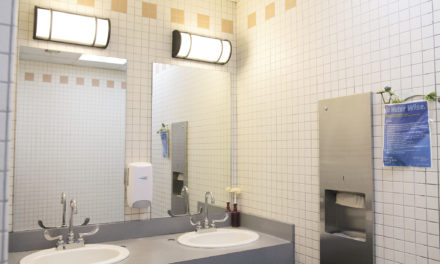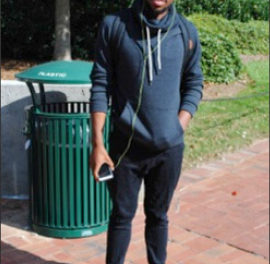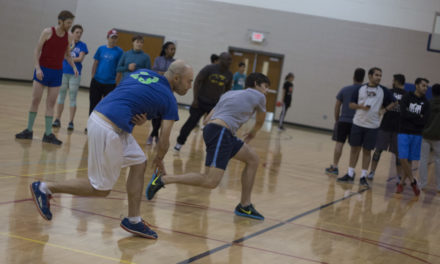Meet Geraldine Nabeta, an Emory College junior and a German studies major. She came to Emory with a deep interest in furthering her understanding of German literature and culture and has been studying German ever since.
Nabeta describes the German studies curriculum as “rigorous.” Though she was allowed to opt out of certain prerequisite classes in German using her IB scores, Nabeta mentions that the Department of German Studies maintains a very language-intensive program.
“German is not an easy language to learn,” Nabeta said. “It’s expected that you take the necessary classes to prepare yourself for higher level language training.”
Certain required classes for the major can also be used to satisfy Emory’s general education requirements, such as German 301 and 302, which are writing classes. According to Nabeta, it is a very engaging major and the intensity is designed so that students are immersed in German culture and gain proficiency in the language. But a German Studies major goes beyond the classroom learning experience.
“The German Department has weekly lunch meetings where students get to speak in German about anything,” Nabeta said. “We go to Zoe’s Kitchen, or Chipotle, or Cox and even the professors come to join us.”
The Department of German Studies also encourages its students to partake in study abroad programs and internships. Nabeta herself applied to RISE Germany, a summer program that provides students with the opportunity to conduct medical research at premier research institutions in Germany.
“I applied to do research on cancer and psychosis,” Nabeta said, “but RISE Germany offers a lot of other options.”
Nabeta was also keen to mention Emory in Vienna, another summer program where students can study German literature and culture in classes taught by faculty from both Emory and the University of Vienna in Austria.
Fortunately for German studies majors, studying German language and culture also opens up many future job opportunities. The German carmakers BMW, Porsche and Mercedes-Benz all have headquarters in Atlanta. Porsche in particular is intent on offering Emory students opportunities to work with the company.
Additionally, for those interested in health-related fields, Germany champions the development of cutting-edge surgical and medical technologies.
“German companies are always keen to hire individuals who show an interest in Germany, so knowing German language and culture is only to your advantage,” Nabeta said. “The Department of German Studies here at Emory has been named a Center for Excellence, meaning it’s one of the best in the country. In other words, you’re in really, really good hands.”
Overall, Nabeta’s experience with the Department of German Studies has been one for the books.
“The faculty really wants to throw out the stereotype that you can’t do anything with a language major, and it shows it in the way they teach us,” she said. “One professor, Hiram Maxim, is basically my unofficial adviser. I’ve never had a class with him but I go to him for everything, whether it’s about my schedule or applying for scholarships. He always helped me, regardless.”
In the near future, Nabeta wants to begin mentoring other students learning the German language.
“I want to get rid of the notion that German is a harsh language, because it’s so interesting,” she said.
To Nabeta, her major in German studies has made all the difference in her college career, and she encourages all who are interested to look into joining the department.
“I personally know around 20 to 25 students majoring in German studies,” she said. “So we are always happy to see new faces in the department!”
– By Ricardo Pagulayan
The Emory Wheel was founded in 1919 and is currently the only independent, student-run newspaper of Emory University. The Wheel publishes weekly on Wednesdays during the academic year, except during University holidays and scheduled publication intermissions.
The Wheel is financially and editorially independent from the University. All of its content is generated by the Wheel’s more than 100 student staff members and contributing writers, and its printing costs are covered by profits from self-generated advertising sales.







